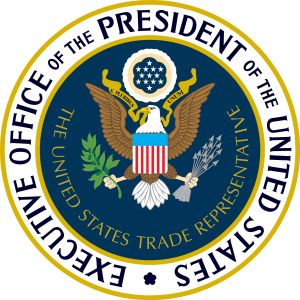 Officials from the U.S. Trade Representative’s office have been signaling to businesses unhappy with the deal finalized last year that they may win extra concessions from TPP partner countries through the implementation process.
Officials from the U.S. Trade Representative’s office have been signaling to businesses unhappy with the deal finalized last year that they may win extra concessions from TPP partner countries through the implementation process.
Politico reports that U.S. Trade Representative Michael Froman “is sending the message that he’s listening to calls from business groups and some members of Congress to address their complaints with TPP through the way it is implemented, as well as other avenues. ‘At this stage, we’re talking with stakeholders, members of Congress, and we’re looking at the various stages that TPP goes through, including, once it’s approved, there’s a period of time between approval and entry into force, to look at how it’s implemented’, Froman told reporters at the U.S. Conference of Mayors’ winter meeting.”
Inside U.S. Trade reports that USTR’s lead agricultural negotiator Carci Vetter said in a recent interview that they can’t renegotiate the terms of the deal “But, you know, there are things we can do” regarding how the agreement is implemented.
Industry observers and Members of Congress have already suggested that the U.S. should continue to win concessions from negotiating partners post-negotiation. For instance, Ways and Means Chairman Kevin Brady recently told Politico “We’ve got to look at that agreement in its entirety, find ways to improve the agreement in areas where the agreement needs improving” before bringing up the TPP in Congress. However, the statements by Fromer and Vetter are the first instances I have seen USTR staff suggesting they may do so. Naturally, intellectual property concerns – specifically the term of data exclusivity for biologic medicines – would be on the short list of items to be addressed.
Countries which previously concluded trade agreements have found that pressure to increase IP protection has often been maintained through the implementations process. Pedro Roffe has written: “What appears to be the experience of countries that have negotiated FTAs is that the process of negotiations does not conclude with the signing of the agreement. The implementation process is a complex and tedious one. In addition, once this implementation phase has been concluded, a subsequent and difficult phase begins with the monitoring of this implementation as it actually takes place not only with the annual reviews of the USTR but also with regular monitoring by industry interested groups (e.g., the International Intellectual Property Alliance (IIPA), Business Software Association (BSA), and the Pharmaceutical Research and Manufacturers of America (PhRMA)).”
Similarly, David Vivas-Eugui and Johanna von Braun have written that “the US has faced criticism for putting forward expectations for domestic reforms from their negotiating partners that go beyond the actual FTA text, and for using the implementation process as a vehicle to continue the negotiation of the final agreement. Indeed, Members of Congress criticised the USTR in the case of the US-CAFTA-DR for: expanding the scope of what is defined as a new product that is subject to data protection rules; increasing the regulatory requirements for generic entry into the market; and allowing for patent or data protection of a new application of an existing product.”
For controversial provisions of the TPP, including data protection for biologics, it seems the negotiations may continue for quite some time.




